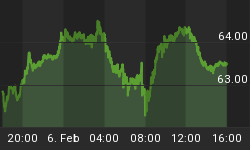December 16 Ruling vs. Ruling Today
On December 16, in a rare victory for constitutional freedoms, U.S. District Court Judge Richard Leon, ruled NSA phone program likely unconstitutional. (See District Court Judge Rules NSA Phone Taps Likely Unconstitutional; 68 Page Ruling Cites "Orwellian Technology" and Unreasonable Searches).
In contrast, a Manhattan District judge ruled today NSA Phone Surveillance Is Legal
U.S. District Judge WIlliam H. Pauley III in Manhattan sided with the government in his decision Friday, calling the collection program a "vital tool" to combat terrorism and deeming it "the Government's counter-punch."The ruling stands in conflict with a decision issued earlier this month in a separate case by a federal judge in the District of Columbia who said the program "almost certainly" violated the Constitution.
The New York case was brought in June by the American Civil Liberties Union, which claimed that the NSA was violating the group's constitutional rights by collecting metadata from the ACLU's phone calls. It was among the first big legal challenges against the NSA program after it was disclosed in June.
The group sought a court order declaring that the mass call logging violated federal law governing foreign intelligence surveillance as well as constitutional free speech and search-and-seizure protections.
Judge Pauley disagreed. "The right to be free from searches and seizures is fundamental, but not absolute," he wrote.
Case Likely Headed for Supreme Court
The Guardian comments on today's NSA Phone Ruling.
A legal battle over the scope of US government surveillance took a turn in favour of the National Security Agency on Friday with a court opinion declaring that bulk collection of telephone data does not violate the constitution.Friday's ruling makes it more likely that the issue will be settled by the US supreme court, although it may be overtaken by the decision of Barack Obama on whether to accept the recommendations of a White House review panel to ban the NSA from directly collecting such data.
But the ruling from Judge William Pauley, a Clinton appointee to the Southern District of New York, will provide important ammunition for those within the intelligence community urging Obama to maintain the programme.
Judge Pauley said privacy protections enshrined in the fourth amendment of the US constitution needed to be balanced against a government need to maintain a database of records to prevent future terrorist attacks. "The right to be free from searches is fundamental but not absolute," he said. "Whether the fourth amendment protects bulk telephony metadata is ultimately a question of reasonableness."
Pauley argued that al-Qaida's "bold jujitsu" strategy to marry seventh century ideology with 21st century technology made it imperative that government authorities be allowed to push privacy boundaries.
"As the September 11 attacks demonstrate, the cost of missing such a threat can be horrific," he wrote in the ruling. "Technology allowed al-Qaida to operate decentralised and plot international terrorist attacks remotely. The bulk telephony metadata collection programme represents the government's counter-punch: connecting fragmented and fleeting communications to re-construct and eliminate al-Qaida's terror network."
The ACLU said it would appeal the decision, starting in the New York circuit. "We are extremely disappointed with this decision, which misinterprets the relevant statutes, understates the privacy implications of the government's surveillance and misapplies a narrow and outdated precedent to read away core constitutional protections," said Jameel Jaffer, ACLU deputy legal director.
Judge Pauley said his ruling did not mean it was right to continue with the program, which he acknowledged was a "blunt tool" that "imperils the civil liberties of every citizen" if unchecked. "While robust discussions are under way across the nation, in Congress, and at the White House, the question for this court is whether the government's bulk telephony metadata program is lawful. The court finds it is," he wrote. "But the question of whether that program should be conducted is for the other two coordinate branches of government to decide."
Conflicted Ruling
Pauley appears to to talking out of both sides of his mouth at the same time, each side saying a different thing.
- "The right to be free from searches and seizures is fundamental"
- "The right to be free from searches and seizures is not absolute"
- Collection program a "vital tool". Al-Qaida's "bold jujitsu" requires government to push privacy boundaries.
- Phone collection "blunt tool" that "imperils the civil liberties of every citizen" if unchecked.
- "Bulk telephony metadata program is lawful"
- "It's for the other two coordinate branches of government to decide"
Fear the Octopus
Is Pauley a constitutional as well as hypocritical wimp or what? Hopefully the Supreme Court gets it right.
My fear is Obama makes some totally meaningless changes in the program to get the Supreme Court ruling he wants, then after the ruling, lets the NSA do whatever it wants, which is to collect everything on everybody, stored permanently.
Nothing Beyond the Octopus Reach
For more on the NSA and its illegal actions, please see the chilling report Nothing Beyond the Octopus Reach
My conclusion ...
The Patriot Act was anything but. It should be scrapped. James Clapper [Obama's Intelligence Director] should be prosecuted and spend the rest of his life in prison where he can think about the true meaning of patriotism.Meanwhile, those looking for a true patriot ought to stand up and salute Edward Snowden. He risked his life, security, and personal freedom to protect the US constitution. What's more patriotic than that?















